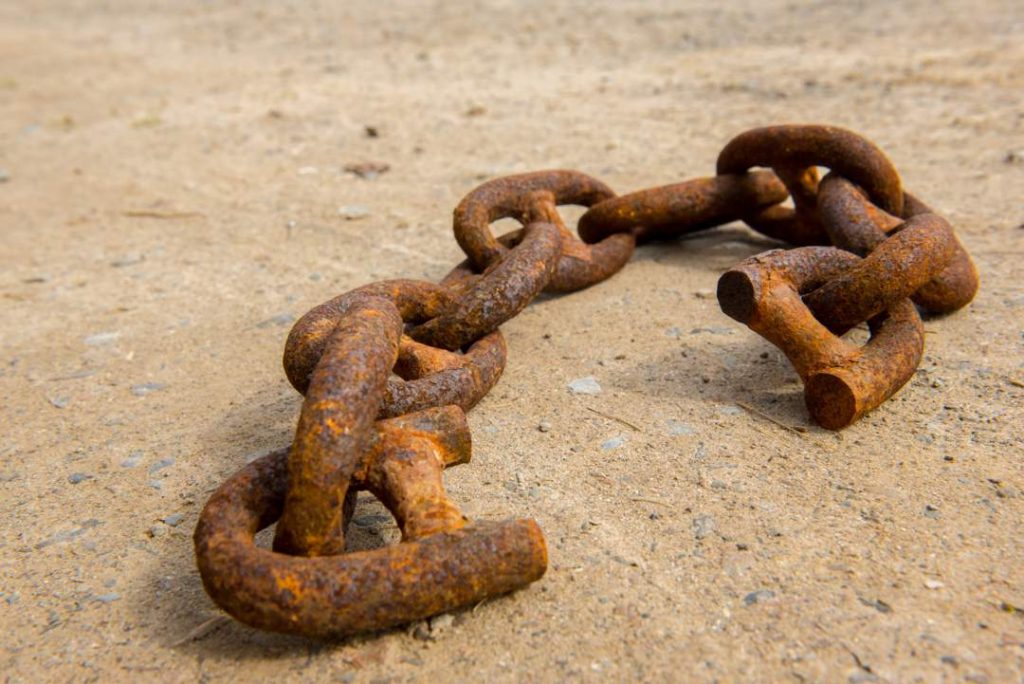“It can’t be done.”
How often in our society do we see that sentiment preventing needed change?
And if that’s not bad enough, it one small step from “It can’t be done” to “There’s nothing we can do,” or “There’s no point in trying.” Since April, at least 12 children have been shot to death in St. Louis, but our state lawmakers refuse to attempt to act despite pleas from local leaders. Whether we are talking about acting to decrease gun violence to helping children stunted by poverty by expanding Medicaid, we hear these leaden pronouncements being dropped like boulders upon us, attempting to quash any idea that collectively, we indeed have power to change things. Pronouncements like these are meant to zap our will, drain our hope, and neutralize our agency.
And it’s funny—it’s often those who benefit and even profit from the status quo who are the loudest voices braying out smug assurances of our helplessness and hopelessness.
In our readings this last Sunday, though, we hear differently. First, some of the opening verses from the prophet Jeremiah, in which Jeremiah responds to his calling by God with the protestation “I am only a boy.” And so it often is with us—we claim that we are too old, too young, too busy, or whatever, to excuse away our silence and inaction when we know that those only exacerbate the problem. Yet God brushes that excuse away—it is then pointed out to Jeremiah that God will be Jeremiah’s refuge as he undertakes the dangerous job of a prophet: the speaking of truth to corrupt power, and the initiation of change within society for the benefit especially of the poor and the oppressed.
Our selection from Psalm 71 reminds us that God is our refuge and our stronghold—not just so we can hide from the work of change, but so that we can dare to overcome resistance to change in the assurance that God is with us.
Then in our gospel, Jesus heals a woman with a severe curvature of the spine, only to be accused (incorrectly) by the temple authorities of violating religious law by performing work on the Sabbath. Jesus actually uses the language of freedom rather than healing– and I think that’s a vital distinction we need to hear and ponder. Jesus rightly proclaims healing and freedom to be the very heart of the Sabbath—that action to save a life is ALWAYS holy.
The attitude of the synagogue leader is clear: She’s already been this way for 18 years, so what’s one more day in order to preserve the Sabbath as HE sees fit to interpret that.
Jesus turns that on its head: the time already spent bent double is too much; what is the point of waiting one more day when the means for not just healing but freedom stands right in front of her? To make her wait would be an act of injustice—and certainly of needless suffering. Jesus truly sees and knows that woman, just as God reminded Jeremiah that even before his birth God knew him.
And because he sees, knows, and loves her, Jesus offers her freedom from her affliction NOW. He offers to break the chains of her affliction right NOW. And that promise and that healing extends to us, today, right now, as well. Because I am convinced that too many of us have our backs bent double, too, just like that woman in the synagogue. And we can’t tell just by looking who that applies to, but it’s safe to assume that EVERYONE carries some burden we don’t know. Our backs can be bent double by neglect, through the wounds and scars many of us bear from our childhoods, from traumatic experiences we may have encountered throughout our lives, accidental or not.
We need to hear this word of freedom especially as we remember the millions of indigenous people enslaved and killed since 1492, and as we remember the 1619 sale of 20 captured Africans in Jamestown this last weekend. Our lack of discomfort regarding the actions can be traced back to refusing to truly SEE the oppressed, to see them and their humanity, then or now.
Our freedom and healing starts with being seen. Our discipleship starts with seeing others as beloved, and then acting on that truth.
We, too, long to hear Jesus pronounce our freedom and help us stand upright. And the loving gaze of Jesus sees each and every one of us just like he truly saw that woman. The good news is that Jesus offers us—all of us!– that freedom, offering it to us in the name of a love that sees us exactly as we are, that loves us no matter what, but then doesn’t just leave us there. That amazing love that Jesus offers each of us is like that balm in Gilead, that makes the wounded whole.
But while we’re accepting that love and that freedom that pours over us like a balm, we are also called to ourselves embody the generosity and empathy that Jesus does. That’s the privilege and essence of discipleship. Our healing NEVER stops with us. Our healing empowers us to be agents of healing in the name of Jesus for the sake of the entire world—no exceptions.
And that starts with really seeing each other- seeing each other as just as beloved of God as we ourselves are. It starts with asking ourselves how our actions and our silences have helped to bend double the oppressed in the world. Then may we cast off all the excuses, and act for the freedom and release of everyone.
The Rev. Leslie Scoopmire is a retired teacher, mom, and musician, and serves as priest-in-charge of St. Martin’s Episcopal Church in Ellisville, MO, in the Diocese of Missouri. She blogs at Abiding in Hope and at Poems, Psalms, and Prayers.

